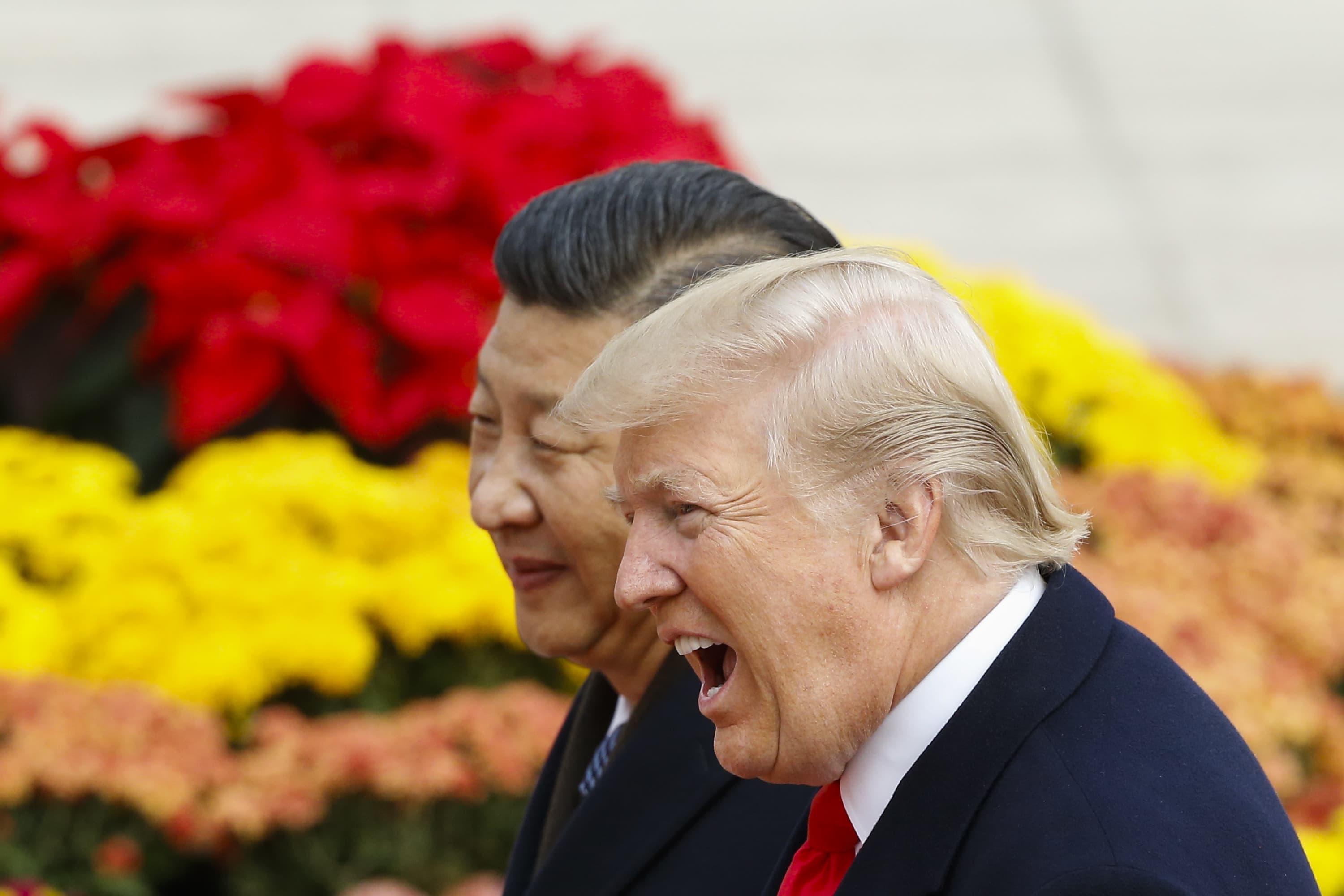President Donald Trump's threat to impose punishing new tariffs on $300 billion in Chinese goods looms over his planned meeting with Chinese President Xi Jinping at the G-20 summit of world leaders.
The two world leaders are scheduled to meet Saturday, the second day of the two-day summit in Osaka, Japan. Officials from both countries have been careful to manage expectations ahead of the summit, playing down the possibility of completing a trade deal.
Both leaders stand to benefit from a deal that staves off new tariffs. But hardliners and nationalists in Beijing and Washington are pressing in the opposite direction, urging further separation between the two countries, fueled by concerns economic and military matters.
Some former diplomats worry that if Trump maintains the tariff threat he could scuttle a chance for a deal.
"That's got to get off the table at the meeting," said Richard Boucher, a former State Department official who later served as deputy secretary-general of the Organization for Economic Cooperation and Development. "Trump has got to say, if we make these deals, I will not go ahead with any future tariff increases."
If Trump and Xi fail to reach a deal and tariffs escalate, the consequences would likely be dramatic, with some major economists suggesting a global recession could result. But during an interview on Wednesday on Fox Business, Trump seemed to play down the potential consequences of failing to make a deal.
"It's possible we are going to make a deal," Trump said. "But I'm also very happy where we are now."
What's the status of U.S.-China trade talks?
The state of play, at the moment, is tense.
Trade talks collapsed in May, leading Trump to escalate tariffs on Chinese goods, which prompted Beijing to ramp up tariffs of their own on U.S. products.
Trump has expressed a willingness to impose tariffs on $300 billion more worth of Chinese goods, which would cover virtually all the country's remaining U.S. imports. Commerce Secretary Wilbur Ross confirmed last week that the president remained "perfectly happy " to go through with his threat.
American businesses say additional tariffs will raise costs. Investors are hoping that the meeting will yield at least a promise to delay new tariffs, though they are factoring in the possibility that the new tariffs will go into effect immediately.
A senior U.S. official said on a call with reporters Monday said Trump is "comfortable with any outcome" from the meeting, Reuters reported.
"The president has been quite clear that he needs to see structural real reform in China across a number of issues and a number of sectors, and nothing about that has changed," a second official said, according to Reuters.
The U.S. and China have clashed over alleged Chinese theft of American technology and the country's subsidies of its industrial sector. Talks fell apart in May after Trump claimed that China went back on some of its promises to remedy those issues, though China said it did not break its promises.
Top level officials have established lines of communication ahead of the meeting, in a sign that some progress could be possible.
Treasury Secretary Stephen Mnuchin expressed optimism in a CNBC interview Wednesday that progress can be made. He and U.S. Trade Representative Robert Lighthizer held a phone call with Chinese Vice Premier Liu He on Monday, the Chinese Ministry of Commerce said, though it did not provide a detailed readout.


